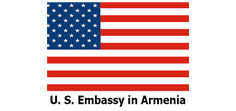The April 19 vote in the Parliamentary Assembly of the Council of Europe on the issue of Armenian captives is being widely discussed by the Armenian public. After all, did some members of the Russian delegation vote against the inclusion of this issue in the agenda, or was the voting on a package of issues? The answer to this question is still not clear for many. For that reason, the Fact Investigation Platform decided to address this topic once again by presenting the whole voting process on the issue.
Procedure for discussion of the issue
The issues of the PACE plenary session are introduced in two packages: urgent debate and current affairs debate. The discussion of the issue of Armenian prisoners of war was included in the package of current affairs debate, and was supposed to be adopted by one vote, with the other three issues included in the package.
The voting process and the results were manipulated by the press and some political circles.
The package of urgent debate included the arrest of Alexei Navalny and activities related to democratic institutions in Turkey. Current affairs debate included the issues of coronavirus passports and coronavirus vaccination certificates, Russian threat to pursuit of peace in Europe and Armenian prisoners of war, other captives and displaced persons. Eventually, two current affairs debate and two urgent debate issues, including the issue of Armenian prisoners of war, were included in the agenda of the PACE plenary session.According to the procedure, the two packages shall be adopted by two votes, but if there is a complaint or objection from any member, a separate issue can be put to a separate vote.
At the April 19 session, the representative of Azerbaijan Samad Seyidov submitted a motion to hold a separate vote on the issue of Armenian prisoners of war, which was upheld. After Seyidov’s speech, which can be seen in the video, the issue of Armenian prisoners of war was put to a separate vote. The issue of Armenian prisoners of war was included in the agenda of the PACE plenary session with 93 votes in favor, 21 against and 18 abstentions. Five of the Russian representatives voted against including the issue in the agenda of the plenary session, and 7 abstained.
By the way, one of the Russian representatives, Sergey Pakhomov, interpreted the voting of the Russian delegation as a “technical failure”.
Ani Avetisyan

 FACTOMETER
FACTOMETER













